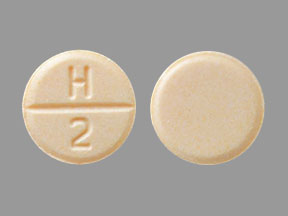
Hydrochlorothiazide Coupons & Savings Card – Discount Prices from $5.57
Generic for: Inzirqo
My prescription
Edit
25MG, Hydrochlorothiazide (30 Tablets)
Select pharmacy

CVS
$18.72
COUPON PRICE
Albertsons
$5.57
COUPON PRICE
Walgreens
$5.57
COUPON PRICE
Walmart
$5.64
COUPON PRICEHydrochlorothiazide savings card
Show this card to your pharmacist
Albertsons
$5.57
BIN
ID
PCN
GRP
011867
LHA7F89803
HT
LABH001
Powered by
More prescriptions for hypertension
More prescriptions for hypertension
Price history for Inzirqo (brand) & Hydrochlorothiazide (generic)
30 Tablets, 25MG
Average retail price for Inzirqo
Average retail price for Hydrochlorothiazide
Average SaveHealth price for Hydrochlorothiazide
Our price history data is based on aggregated prescription data collected from participating pharmacies in America. Our prescription data updates daily to reflect the latest price changes. If you notice a missing data point, it means there wasn't sufficient data available to generate a monetary value for that date.
We analyzed Hydrochlorothiazide prices for (25MG, 30 Tablets) over the last 12 months. The average retail price was $11.38, while the average price using the SaveHealth discount card was $7.40. That's a savings of approximately 34.97% when using our Hydrochlorothiazide coupon.
Compared to the generic version, Inzirqo had an average price of $464.97 over the same time period. With the SaveHealth savings card, Hydrochlorothiazide is 98.41% cheaper on average than Inzirqo.
*Retail prices are based on pharmacy claims data, and may not be accurate when we don't have enough claims.
Hydrochlorothiazide dosage forms
Dosage Quantity Price from Per unit 12.5MG 30 Tablets $10.34 $0.34 12.5MG 45 Tablets $11.01 $0.24 12.5MG 60 Tablets $11.68 $0.20 12.5MG 90 Tablets $18.67 $0.21 12.5MG 180 Tablets $22.35 $0.12 25MG 30 Tablets $9.37 $0.31 25MG 45 Tablets $9.55 $0.21 25MG 60 Tablets $9.73 $0.16 25MG 90 Tablets $16.10 $0.18 25MG 180 Tablets $17.20 $0.10
| Dosage | Quantity | Price from | Per unit |
|---|---|---|---|
| 12.5MG | 30 Tablets | $10.34 | $0.34 |
| 12.5MG | 45 Tablets | $11.01 | $0.24 |
| 12.5MG | 60 Tablets | $11.68 | $0.20 |
| 12.5MG | 90 Tablets | $18.67 | $0.21 |
| 12.5MG | 180 Tablets | $22.35 | $0.12 |
| 25MG | 30 Tablets | $9.37 | $0.31 |
| 25MG | 45 Tablets | $9.55 | $0.21 |
| 25MG | 60 Tablets | $9.73 | $0.16 |
| 25MG | 90 Tablets | $16.10 | $0.18 |
| 25MG | 180 Tablets | $17.20 | $0.10 |
| 50MG | 30 Tablets | $9.95 | $0.33 |
| 50MG | 45 Tablets | $10.42 | $0.23 |
| 50MG | 60 Tablets | $10.90 | $0.18 |
| 50MG | 90 Tablets | $17.85 | $0.20 |
| 50MG | 180 Tablets | $20.70 | $0.12 |
